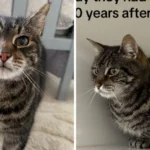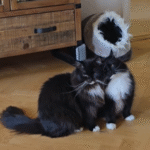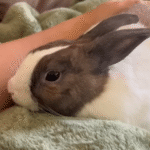Have you ever watched a cat lounge calmly in a sunbeam, completely at ease in its own company, while a nearby dog paces and whimpers, desperate for attention? It’s more than just personality; cats and dogs are wired differently, and when it comes to independence, cats truly shine. For cat lovers, this trait is both fascinating and endearing. But what gives cats that cool confidence to handle independence so well, leaving many dogs in the dust? Let’s dive into the most surprising and compelling reasons why cats are the ultimate masters of self-reliance.
Unique Evolutionary Background

Cats and dogs have followed completely different evolutionary paths, and this shapes their views on independence. Cats evolved as solitary hunters, relying on their own skills to catch prey and survive. Unlike dogs, who descended from wolves and depended on pack cooperation, cats had to fend for themselves. This history built into them a deep sense of self-sufficiency. Cats never needed a group to feel safe or fulfilled, and this legacy remains strong today. Their ancestors thrived by relying on their agility, stealth, and wit, not on teamwork. So it’s no wonder that modern house cats are so comfortable spending time alone. This ingrained independence is as natural to them as breathing.
Self-Grooming Experts

One of the most remarkable signs of a cat’s independence is its dedication to self-grooming. Cats spend a significant portion of their day licking their fur, cleaning their paws, and making sure every whisker is in place. Unlike dogs, who often need regular baths from their humans, cats rarely require outside help to stay clean. This ritual is not just about hygiene—it’s a soothing, self-sufficient activity that reduces stress and keeps them healthy. Their sandpaper tongues and flexible bodies are perfect tools for solo grooming. This routine means cats can be left alone for longer periods without becoming disheveled or uncomfortable. It’s just one more reason they handle being on their own so gracefully.
Litter Box Independence

Perhaps one of the most practical examples of a cat’s independence is its use of the litter box. Cats instinctively know how to bury their waste, a habit carried over from their wild ancestors. This behavior allows them to take care of their needs without any assistance. In contrast, most dogs require walks and supervision for bathroom breaks, tying their routines closely to their humans. The litter box gives cats freedom and flexibility—they don’t need anyone to let them out or clean up immediately after them. This makes cats perfect for people with busy lives, allowing them to stay content and comfortable even if left alone during long workdays.
Low Social Demands

Cats are famously selective when it comes to social interaction. While dogs often crave constant attention and can become anxious or destructive if left alone, cats are usually content with their own company. They might seek affection on their own terms, but they don’t depend on it to the same extent as dogs. This doesn’t mean cats don’t love their humans—they just express it differently. Their ability to stay emotionally balanced without constant company is a hallmark of their independence. Many cat owners find it refreshing that their feline friends can enjoy solitude as much as they value companionship.
Adaptability to Different Environments

Cats are masters at adapting to new environments, making them more resilient when circumstances change. Whether moving to a new home, rearranging furniture, or adjusting to a new family member, cats often find their own safe spaces and settle in quietly. Dogs may require more support and reassurance during these changes, clinging to familiar routines and people. Cats, on the other hand, have a knack for finding comfort wherever they are. Their curious nature drives them to explore and claim new territories, turning any place into their own private kingdom. This adaptability is a powerful tool for independent living.
Efficient Self-Entertainment

Leave a cat alone with a cardboard box or a sunbeam, and it will find ways to amuse itself for hours. Cats have a talent for turning the simplest objects into sources of fun. Whether it’s chasing a dust mote, pouncing on a toy mouse, or simply watching birds through a window, cats are rarely bored. Dogs, however, often require more interactive play and can become restless without stimulation. This ability to self-entertain is a key reason cats handle being alone so well—they’re their own best playmates, always dreaming up new games and adventures without relying on anyone else for fun.
Quiet and Unobtrusive Nature

Cats are generally quiet creatures, rarely making noise unless they have something important to say. Unlike dogs, who may bark or whine when they’re lonely or anxious, cats tend to communicate more subtly. Their quiet nature means they don’t draw unnecessary attention to themselves or create disturbances when left alone. This self-contained way of living makes cats easy companions for people who value peace and tranquility. A cat will often nap silently for hours, content in its own little world, proving yet again how effortlessly they manage independence.
Self-Regulated Eating Habits

Many cats are skilled at managing their own eating habits. They often prefer to graze, nibbling at their food throughout the day rather than gulping it all at once. This differs from dogs, who may eat everything in sight as soon as the bowl is filled. Because of this, cats can be trusted to self-feed when dry food is left out, making it easier for their humans to leave the house for longer stretches. Their ability to regulate their own meals contributes to their overall sense of independence, reducing the need for constant attention or routine.
Natural Problem-Solvers

Cats are clever problem solvers, using their intelligence and curiosity to figure things out on their own. Whether it’s opening a door, finding the most comfortable spot to nap, or inventing a new way to reach a high shelf, cats rarely wait for help. This resourcefulness is a core part of their independent spirit. Dogs, while intelligent in their own right, often look to their humans for guidance and reassurance when faced with new challenges. Cats, on the other hand, trust themselves to find solutions, and this self-reliance is a big reason they thrive when left to their own devices.
Calm Response to Solitude

Perhaps most importantly, cats typically remain calm and composed when left alone. They don’t panic, bark, or destroy furniture out of anxiety. Instead, they use the time to rest, groom, or explore quietly. While some dogs may struggle with separation anxiety, cats embrace solitude as an opportunity for peaceful reflection. Their ability to find contentment in their own company is both impressive and inspiring. For anyone who values a pet that can handle life’s occasional absences, cats stand out as serene and self-assured companions.

Linnea is a born and bred Swede but spends as much time as possible in Cape Town, South Africa. This is mainly due to Cape Town’s extraordinary scenery, wildlife, and atmosphere (in other words, because Cape Town is heaven on earth.) That being said, Sweden’s majestic forests forever hold a special place in her heart. Linnea spends as much time as she can close to the ocean collecting sea shells or in the park admiring puppies.






